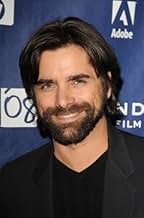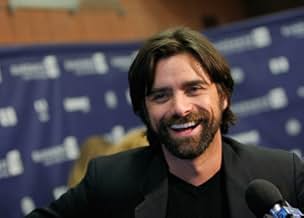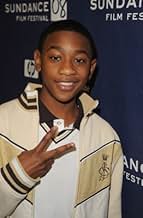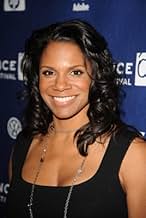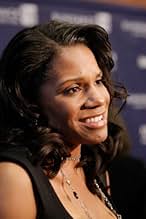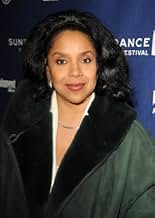IMDb-BEWERTUNG
6,5/10
2174
IHRE BEWERTUNG
Füge eine Handlung in deiner Sprache hinzuAn African-American family struggles with poverty, racism, and inner conflict as they strive for a better way of life. Based on the play by Lorraine Hansberry.An African-American family struggles with poverty, racism, and inner conflict as they strive for a better way of life. Based on the play by Lorraine Hansberry.An African-American family struggles with poverty, racism, and inner conflict as they strive for a better way of life. Based on the play by Lorraine Hansberry.
- Für 3 Primetime Emmys nominiert
- 9 Gewinne & 24 Nominierungen insgesamt
Sean 'Diddy' Combs
- Walter Lee Younger
- (as Sean Combs)
Ron Cephas Jones
- Willy Harris
- (as Ron C. Jones)
Handlung
WUSSTEST DU SCHON:
- WissenswertesPhylicia Rashad's sister, Debbie Allen, played "Beneatha Younger" in the Broadway musical, "Raisin".
- PatzerWhen they are packing up the apartment, Momma is working on putting sticks around a small plant to protect it to wrap it. The number and location of the sticks are not in sync with the timing.
- VerbindungenFeatured in The 60th Primetime Emmy Awards (2008)
Ausgewählte Rezension
There is nothing wrong with remaking and recasting the Lorraine Hansberry masterwork; we shouldn't pay undue fealty to the original cast. I'm sure Olivier's, Jacobi's, and Branaugh's Hamlet would suffer in comparison to the original Burbage performance. Plays are meant to be inhabited by different people as the generations pass. Therefore, there is nothing wrong, in theory, to the making of this version.
This rendition is superior to the 1989 "American Playhouse" performance, which was poorly paced and largely overacted. The female parts are perfectly cast and performed. The same cannot be said, unfortunately, for the male parts.
P. Diddy, or Sean Combs, or whatever name he is going by these days, simply does not have the acting chops to bring out the complexities of the Walter Younger character. Where Sidney Poitier and, to a lesser extent, Danny Glover, were able to grasp hold of the anger and frustration of the man, Mr. Diddy twitches and frowns. He performs as if a lowered head and furrowed eyebrows are the makings of a great performance. I was reminded of Hayden Christianson taking the complex evil of Darth Vader and turning him into a naughty teenager. Combs plays Walter like a street punk.
Sean Patrick Thomas, as George Murchison, fares a little better. He does what he can with what is essentially a superficial and somewhat stereotyped character.
The greatest error is the miscasting of John Stamos as Lindner. He gives the character a harder, more outwardly racist edge than John Fiedler, who created the role. Stamos drips hatred and prejudice just a little too much -- it is easy to ultimately say no to him just to tick him off. Fiedler, working with Hansberry, had a much better grip on the role -- not a man who is outwardly racist, but as one who is sadly misinformed, ignorant (meaning, simply, not understanding), and afraid. Stamos tries to chew up just a little too much scenery.
David Oyelowo, as Joseph Asagai, is the most well cast male in the film, hitting every note required by the character.
The female cast fares far better. Phylicia Rashad recreates and improves upon the role of Lena Younger, breaking the "Mammy"-isms of the earlier performers. Audra McDonald certainly will not usurp Ruby Dee as the definitive Ruth Younger, but does an excellent job in a part that requires an extreme range of emotion.
The greatest revelation in the film by far is Sanaa Lathan as Beneatha. Beneatha is a key character in the play and is relatively ignored in the original, and not particularly well played in the 1989 version. Playing a character substantially younger than she is in real live, Lathan is able to exhibit the hope, anger, childish "know-it-all" attitude and sadness of a young woman in her position. Unfortunately, the screenwriters chose to omit her lovely, sad second-act monologue about her desire to become a doctor; this section was excised in the original film and restored in the American Playhouse version and should have been present here.
Overall, this is a worthwhile film, but imperfect in many ways.
This rendition is superior to the 1989 "American Playhouse" performance, which was poorly paced and largely overacted. The female parts are perfectly cast and performed. The same cannot be said, unfortunately, for the male parts.
P. Diddy, or Sean Combs, or whatever name he is going by these days, simply does not have the acting chops to bring out the complexities of the Walter Younger character. Where Sidney Poitier and, to a lesser extent, Danny Glover, were able to grasp hold of the anger and frustration of the man, Mr. Diddy twitches and frowns. He performs as if a lowered head and furrowed eyebrows are the makings of a great performance. I was reminded of Hayden Christianson taking the complex evil of Darth Vader and turning him into a naughty teenager. Combs plays Walter like a street punk.
Sean Patrick Thomas, as George Murchison, fares a little better. He does what he can with what is essentially a superficial and somewhat stereotyped character.
The greatest error is the miscasting of John Stamos as Lindner. He gives the character a harder, more outwardly racist edge than John Fiedler, who created the role. Stamos drips hatred and prejudice just a little too much -- it is easy to ultimately say no to him just to tick him off. Fiedler, working with Hansberry, had a much better grip on the role -- not a man who is outwardly racist, but as one who is sadly misinformed, ignorant (meaning, simply, not understanding), and afraid. Stamos tries to chew up just a little too much scenery.
David Oyelowo, as Joseph Asagai, is the most well cast male in the film, hitting every note required by the character.
The female cast fares far better. Phylicia Rashad recreates and improves upon the role of Lena Younger, breaking the "Mammy"-isms of the earlier performers. Audra McDonald certainly will not usurp Ruby Dee as the definitive Ruth Younger, but does an excellent job in a part that requires an extreme range of emotion.
The greatest revelation in the film by far is Sanaa Lathan as Beneatha. Beneatha is a key character in the play and is relatively ignored in the original, and not particularly well played in the 1989 version. Playing a character substantially younger than she is in real live, Lathan is able to exhibit the hope, anger, childish "know-it-all" attitude and sadness of a young woman in her position. Unfortunately, the screenwriters chose to omit her lovely, sad second-act monologue about her desire to become a doctor; this section was excised in the original film and restored in the American Playhouse version and should have been present here.
Overall, this is a worthwhile film, but imperfect in many ways.
Top-Auswahl
Melde dich zum Bewerten an und greife auf die Watchlist für personalisierte Empfehlungen zu.
Details
- Erscheinungsdatum
- Herkunftsland
- Sprache
- Auch bekannt als
- Una sombra bajo el sol
- Drehorte
- Produktionsfirmen
- Weitere beteiligte Unternehmen bei IMDbPro anzeigen
Zu dieser Seite beitragen
Bearbeitung vorschlagen oder fehlenden Inhalt hinzufügen



